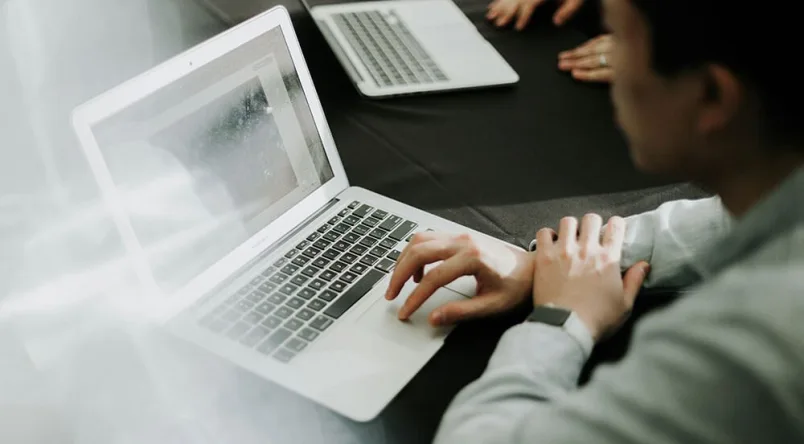With ‘People First’ as a core value at FlyForm, we’re always aiming to take care of each other’s mental wellbeing. To support this year’s Mental Health Awareness Week, our Wellbeing Ambassadors have been sharing experiences and resources to help our FlyFormers combat anxiety in the workplace.
Mental Health Awareness Week (MHAW) encourages organisations and their people to think about mental health and the effect their work has on it. This year’s theme centres on anxiety in the workplace, an increasingly common symptom of our modern pace of life.
This week, our fantastic FlyForm Wellbeing Ambassadors have been raising awareness of MHAW by providing workplace wellbeing information and signposting staff to useful resources.
We have a team of 16 Wellbeing Ambassadors at FlyForm - all people who have an active interest in supporting others’ wellbeing in the workplace. These lovely people are available to any FlyFormer who may need someone to talk to and are always on hand to help promote a healthy state of mind.
Why does anxiety at work matter?
The theme of MHAW this year is ‘anxiety’ and our Wellbeing Ambassadors have been encouraging our FlyFormers to talk openly about it by asking them to share their tips and advice for dealing with anxiety in the workplace.
We spend so much time at work, it needs to be a place where we can thrive – workplace anxiety is really common and there are plenty of quick and simple things we can do to help manage or eliminate it.
Emma Wilcox, one of our Wellbeing Ambassadors, had this to say about anxiety: “Anxiety is normal, but it can get out of hand and affect our wellbeing. I sometimes get anxious at the start of a new project. Being organised and prepared before I start helps to reduce my feelings of anxiety but I’m also not afraid to ask for help if I need it.
“There are lots of useful resources out there about anxiety, such as the blog by Everymind at Work called, ‘Why does my work give me anxiety?’ which explains what anxiety is and then goes on to give useful advice on how to tackle it.”
Chloe Sykes, another Wellbeing Ambassador, added to this: “Something that really rang true for me in the Everymind article was around the ‘always on’ state of mind that is so prevalent now. We have our phones permanently attached to us with so many ways for people to get in touch, and I must confess to feeling quite overwhelmed by that at times.
“I have a busy mind and find myself jumping from task to task because I always feel like I’m in a rush to get to the next thing. That isn't because someone else expects that of me, I have created that sense of urgency for myself and the ‘always-on’ mentality is the source of that.
“I don’t always have a handle on that feeling, but I do find giving myself structure helps to stop me from jumping around. I use Tasks by Planner in Teams for my To Do list, block out time in my diary when I need to focus, and colour code it to help me see at a glance what’s client-facing, internal, or just something for me to remember or do.
“I'm also getting better at stepping away from my desk periodically and leaving my phone behind, just to have a short time when I'm not tempted to check my emails/Slack, etc.”
Wellbeing support at FlyForm
We have several initiatives in place to help reduce anxiety at FlyForm, and to support our FlyFormers in taking care of their wellbeing:
- 10-minute coffees: An app randomly pairs people up each Monday so they can schedule 10 minutes for a chat, either virtual or in-person, to talk about whatever they want – and it doesn’t have to be work-related. It’s a great way to meet other people in the business you wouldn’t normally interact with and can prevent feelings of isolation or detachment.
- Wellbeing Ambassadors: Our Ambassadors are on hand to talk to, with a willing ear if you’re struggling. There are members from every area of the business, and all Ambassadors are easily identifiable by the blue heart on their Slack profile.
- BUPA: We offer private medical care as a benefit to our FlyFormers, which includes access to a wealth of mental health support and resources.
- Perkbox: Another benefit, Perkbox offers access to meditation walkthroughs, wellbeing articles and advice in a single app.
- LifeWorks: LifeWorks is an online and app-based service that offers tools and programmes to support physical, financial and mental wellbeing both at work and at home. FlyFormers can also access a 24/7 Employee Assistance Programme to get confidential advice and support.
- 15Five and Engage Surveys: These weekly and quarterly surveys offer a way for FlyFormers to feedback on how they’re doing and any problems they may have, information that’s fed directly into their manager or Senior Leadership Team as appropriate.
- Incognito: Giving feedback can be an anxiety-inducing experience, so we have a dedicated anonymous feedback channel to raise awareness within the leadership team about things that are working well, or not so well. This can help encourage shares from those who might otherwise let their anxiety talk them out of it.
Resources for dealing with anxiety
If you struggle with anxiety in the workplace, don’t worry, you’re not alone. If you’d like to find out more or are looking for support, we’d recommend checking out the links below (we’ll also be sharing these with our own FlyFormers throughout the week!)
- Everymind: Everymind has some great resources for staff and HR/Wellbeing representatives. They also run a monthly webinar with a different topic each month. Paul McGregor is very engaging and passionate about making a difference – he recently ran a session at FlyForm on the importance of mental wellbeing and is well worth reaching out to.
- Mind: Mind is a charity often supported by our FlyFormers because of their important work providing mental health support to those in need. The Mind website is a great source of information and resources both for yourself and for supporting others.
- Mental Health Foundation: The Mental Health Foundation passionately campaign to support good mental health for all. Their guide on how to cope with feelings of anxiety can help you re-establish control and better manage day-to-day stresses.


